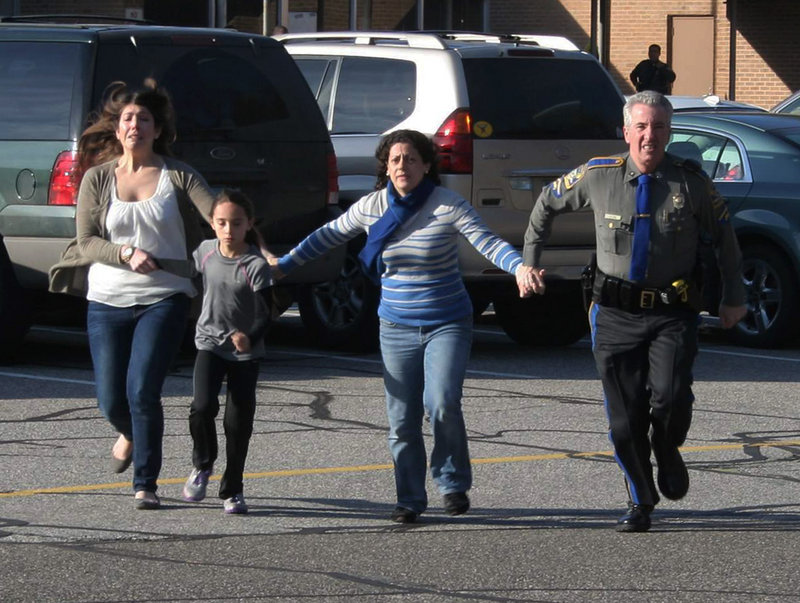WATERVILLE – We’ve been talking a lot about guns since the Sandy Hook Elementary massacre. One line of the conversation has concerned the steady advance of laws over the last two decades that expand gun ownership rights and the simultaneous defeat of laws that restricted gun use. This development is not only comprehensible; it was also predictable.
The logic behind the recent expansion of gun rights illustrates a fundamental truth of political action: Those who are equipped both with motivation and resources are likely to get their way.
In our society, this is particularly visible in the power of membership-based interest groups like the National Rifle Association to advance the preferences of their members. While membership-based interest groups provide benefits to group members, the benefits provided by public-serving interest groups — like the Brady Campaign to End Gun Violence — are far more diffused and don’t accrue to a particular group. This puts public-serving interest groups at a disadvantage.
Under normal circumstances, an interest group providing a specific benefit — special privileges, fewer restrictions — to a specific group that really cares about an issue is going to have a more mobilized and generous membership than one that generally benefits a larger and more apathetic group.
So what is going to allow us to create new and reasonable restrictions on gun ownership? We have to begin thinking of ourselves as a special interest. We have to become willing to pay for and fight for our public life.
The mass shootings that occurred over the past year represent a mounting attack on our ability to live an unthreatened public life. In 2012 in the United States, shooters killed people in a mall in Oregon, in a place of worship in Wisconsin, in a movie theater in Colorado, in a university in California, in an elementary school in Connecticut. These are the normal public places where we spend our time.
There have been calls to arm all people entering all public places to deal with this threat. Every time we go to church, to the movies, or to school, they suggest, we are irresponsible if we aren’t packing heat.
Forgive me, but we live in an ordered society with a police force and a national military. We pay them, through our taxes, to preserve our collective security. If they are having trouble doing that, we should help them by supporting more effective regulation and providing the resources they need.
To argue that every kindergarten teacher — and every moviegoer, and church parishioner — needs to replicate the role played by the police replaces our current public life with a scene from a Wild West shootout. The Wild West was a lawless place. We are a lawful place. We need to start asserting that and demonstrating our collective commitment to this reality.
If we value having a demilitarized public space, we have to vocally support it by supporting legislative efforts to promote responsible gun ownership.
We can support hunters and people who want to have a gun to defend their homes while limiting the availability of guns and ammunition to what’s appropriate for those activities. We can get serious about requiring background checks for gun owners to be sure that people with criminal histories and serious mental health problems can’t legally buy guns.
Change will require a change in how we define and defend our interests. Until now, we have allowed the logic of interest groups to operate in the case of gun control. When membership groups achieve a political outcome that seems to go against the broader public interest, this demonstrates a second principle of political action: Small groups are able to extract special benefits if the costs are spread out widely enough.
Expansive gun rights that allow people unfettered access to the purchase and use of firearms benefit a small group but generate a broad social cost. While lax laws are good for those who want to buy guns easily and carry them with them at all times, it is bad for the rest of us if that lack of oversight over gun ownership results in more members of the public getting killed.
Until Sandy Hook, the public demonstrated that this cost was light enough to bear. Is it still?
Emily Shaw is an assistant professor of political science at Thomas College.
Send questions/comments to the editors.



Success. Please wait for the page to reload. If the page does not reload within 5 seconds, please refresh the page.
Enter your email and password to access comments.
Hi, to comment on stories you must . This profile is in addition to your subscription and website login.
Already have a commenting profile? .
Invalid username/password.
Please check your email to confirm and complete your registration.
Only subscribers are eligible to post comments. Please subscribe or login first for digital access. Here’s why.
Use the form below to reset your password. When you've submitted your account email, we will send an email with a reset code.